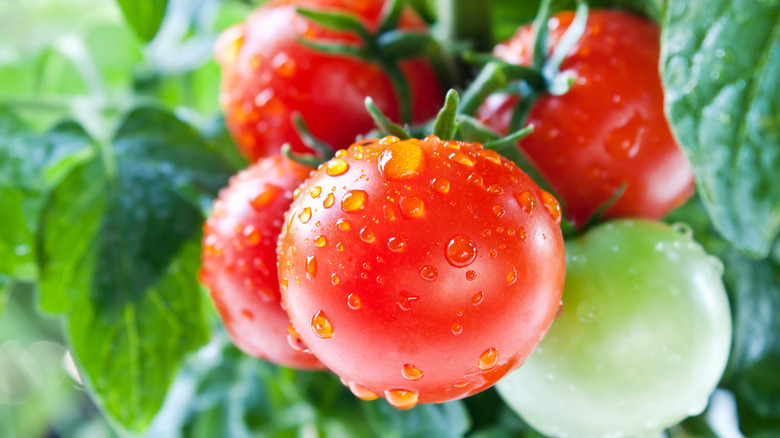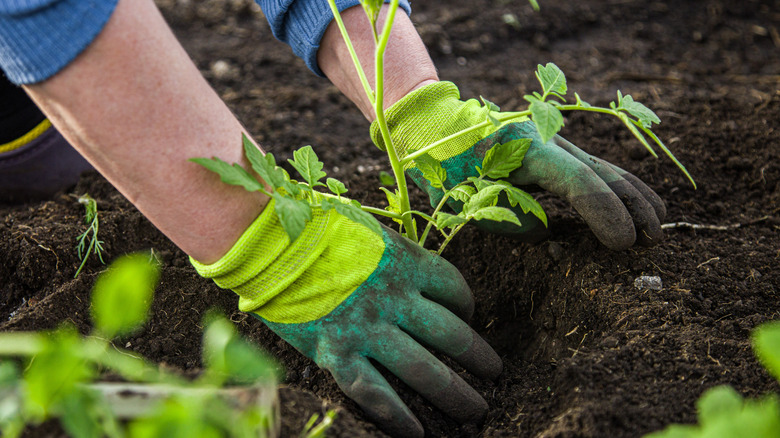Why You Should Think Twice Before Cracking An Egg Into Your Tomato Plants
Just because a gardening hack is effective for one person doesn't necessarily mean it'll work for absolutely everyone. Such is apparently the case for the practice of cracking a whole raw egg into the soil before planting a tomato plant. The point of adding a cracked egg into the planting hole is that the egg and the shell will serve as a nutrient-rich fertilizer. The egg itself is packed with calcium, phosphorous, potassium, and other beneficial nutrients, which is why some gardeners opt to include the whole thing during the planting process. While this would seem to make sense, experienced gardeners report wildly different results when fertilizing this way, some of which even make you wonder whether or not it should be done at all!
As opposed to whole eggs, adding just eggshells on their own is another popular way to add calcium to the soil, although many gardeners assume it's enough to simply place the shells in the dirt to reap the benefits. However, the eggshells still take a long time to break down to the point where they can be beneficial at all. This is why it's better to grind the shells up beforehand so that the nutrients will be more effectively absorbed.
Why whole eggs and planting might not mix
TikToker and gardening guru @libbyzflanagan swears that cracking eggs in each tomato plant whole will produce "thousands of tomatoes," and she's hardly the only one who does this. However, fellow TikToker and gardener @grace.roots.gardening begs to differ, reporting that, "Every single time I have ever tried that, I have had animals come get in my garden, dig up, and destroy my tomato plants." This could even be more of a risk to gardeners who place a whole, uncracked egg in the planting hole, as eventually the egg will go bad and start to stink, attracting pests.
Then there's some doubt that the egg's nutrients, although beneficial when eaten by humans, are going to help the tomato plant at all. Expert gardener Larry Hodgson noted that an egg only contains a small amount of the minerals the plants need: "If you already routinely add compost and an all-purpose organic fertilizer to your soil at planting, as most gardeners do, an egg really won't make a huge difference."
This is not to say that you can't try the hack, but only do it if the area is secure from animals. If you'd rather not chance it, purchase a garden fertilizer that is high in phosphorous, medium-high in potassium, and low in nitrogen for maximum tomato success.

